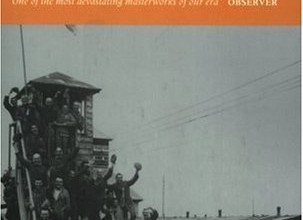III
On Fridays, everyone went for the prayer of Jumu’ah to a permanent mosque nearby and chairs remained scattered in the makeshift one until late afternoon. Yousuf looked somewhat distrait, mopping the floor with perfunctory strokes. Presently, he erected a sign that read, “Caution! Wet floor!†and came to me to say his first words,
“Chhotay saa’b[8], ik kup chai mil sukthee aey?â€
He supplicated as though he had considered the possibility of my outright denial, even though tea was free for all.
“Bilku’l[9],†I replied.
Promptly, he handed me one of the few grey cups before I could pour tea into one of the common green ones used by all staff. I asked him if he did not like the colour green.
“Naeenh saa’b jee, passand kya kerna aey. Hum lokaan tha toh buss yehi kup hee hai jee,[10]†he replied, his large eyes still rather glazed and a vague half-smile coming over his lips as he scratched the vicinity of the mole adjacent to his nostril.
I peered at his dark vacuous face, handing over the cup to him.
“Aehh… please… one more spoon [of sugar], master!â€
“It’s already quite sweet!â€
“I’ve drunk it before, sir.â€
I wondered how people so often got precisely the opposite of what they desired…
I added one extra teaspoon to the two already mixed by the tea-maker.
I noticed his intonation was laced with a Punjabi twang and he picked words from the mother tongue quite generously. However, to my puzzlement, he always maintained Urdu as his purported language at work with all of us.
Yousuf gratefully held the cup with both his hands, and an abject smile got suspended between his pointed cheekbones.
“Meyerbaani, boce[11],†he said.
He then proceeded to vanish behind the elevator frame to have his tea.
“Why not drink it here?†I asked.
“Aehh… it’s good there.â€
The canteen was quite uncongested on Fridays. Yousuf slurped his tea in solitude, continually mumbling to himself and peering into the reflections of tube lights diminishing from the dampened floor as it dried, where on other days lay the holy mats.
Zu’hra told me she spent her Friday afternoons in the lunchroom as her break was longer than usual – thanks to the ladies’ being spared from the Jumu’ah prayers.
“So, why don’t you pray behind the imam as well?†I asked her.
“It doesn’t seem… appropriate, you know, with the gentlemen,†she simply said.
I could not understand how it was appropriate to chatter and chortle along with men at the lunch table but not pray when everyone was engrossed in worship.
That Friday, though, she seemed a bit quiet and remained in the lunchroom throughout the afternoon, missing her separate prayer as well.
“Not praying today, Zu’hra baaji[12]?†I said.
“No.â€
“Are you lazy?â€
“No… just like that.â€
“Like what?â€
“I am not to pray today. That’s just how it is!â€
“Oh, like I am not to go to school these days?â€
She giggled and nodded.
I asked if the attendencist gentlemen also got such respites, to which she replied in the negative. I wondered how people so often got precisely the opposite of what they desired: Yousuf loved laying the mats, and was supposed to observe people eat, laugh, and wander about soiling his imaginary mosque; Zu’hra loved Him and sang His praises but she was barred from praying; the attendencists only wanted the count of their prayers to be updated, they had to walk two hundred yards to do so; and I — well.
[8] A Punjabi elision of ‘saahib’ (see footnote 2). [9] “Of course.†[10] “No, master. What’s [there] to like [about the colour]! We people just have these cups, sir.†[11] “Kind of you, boss.†[12] Elder sister.




